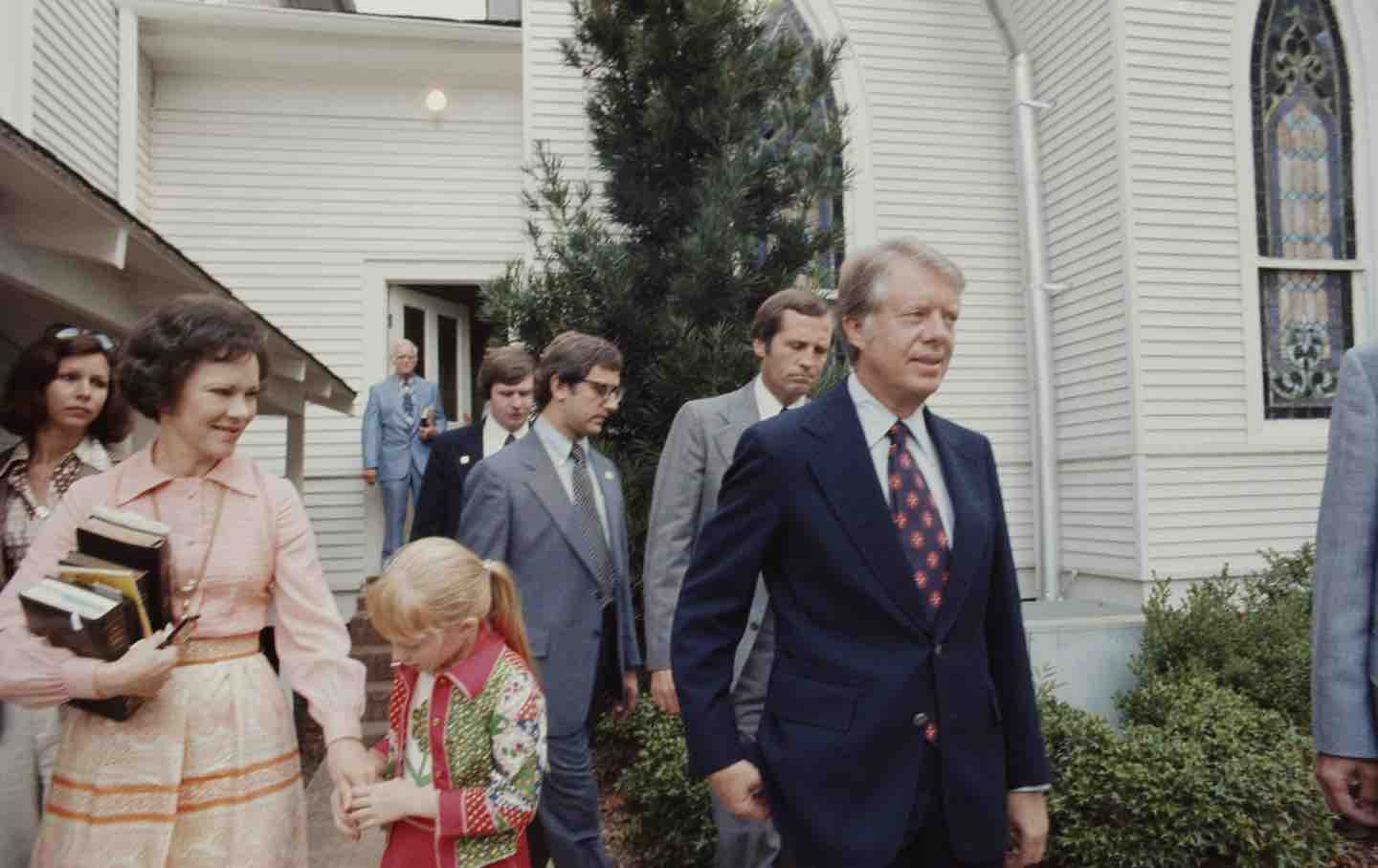How Jimmy Carter Lost Evangelical Christians to the Right

How Jimmy Carter Lost Evangelical Christians to the Right
The Rise and Fall of Evangelical Support for a Born-Again Baptist President
Jimmy Carter, a devout Baptist, became the last U.S. president to win a majority of evangelical votes in 1976. Yet, as his term progressed, those voters shifted allegiance, irrevocably realigning their support to the right.
Evangelist Jerry Falwell infamously accused Carter of being "one of the worst presidents ever," marking a stark departure from their previous embrace.
Shifting Priorities and Partisan Divide
The evangelical right emerged during Carter's presidency, fueled by fears of moral decline and perceived threats to their way of life. Issues such as abortion, school prayer, and the role of women in society became increasingly divisive.
Evangelical leaders like Tim LaHaye and Hal Lindsay stoked concerns about secular humanism and the decline of Christian values, polarizing evangelists along partisan lines.
The IRS Ruling and the Religious Right Ascendant
A 1978 IRS ruling that denied tax exemptions to racially segregated private schools ignited outrage among evangelical parents, who saw it as an attack on their religious freedom.
"They thought if we can't even have our own institutions.... they need to get out and fight," said Calvin University historian Kirstin Du Mez.
The controversy galvanized the evangelical right, solidifying their identity as a potent political force.
Exploding Divisions and Forgotten Lessons
The White House Conference on Families and the National Conference on Women's Rights further widened the rift between Carter and evangelical leaders, who rejected his pluralistic approach to family values.
Carter's perceived stance as weak on foreign policy, particularly during the Iran hostage crisis, further alienated conservative evangelicals.
"By the end of Carter's presidency, that [assumption that a born-again candidate was a safe choice] wasn't true," said University of West Georgia historian Daniel K. Williams.
Lessons Learned and Enduring Legacy
Carter's presidency revealed deep fissures within evangelicalism, highlighting the complex relationship between politics and faith.
"What's often overlooked is that Carter's presidency revealed factions among evangelicals that even evangelicals didn’t know existed," added Williams.